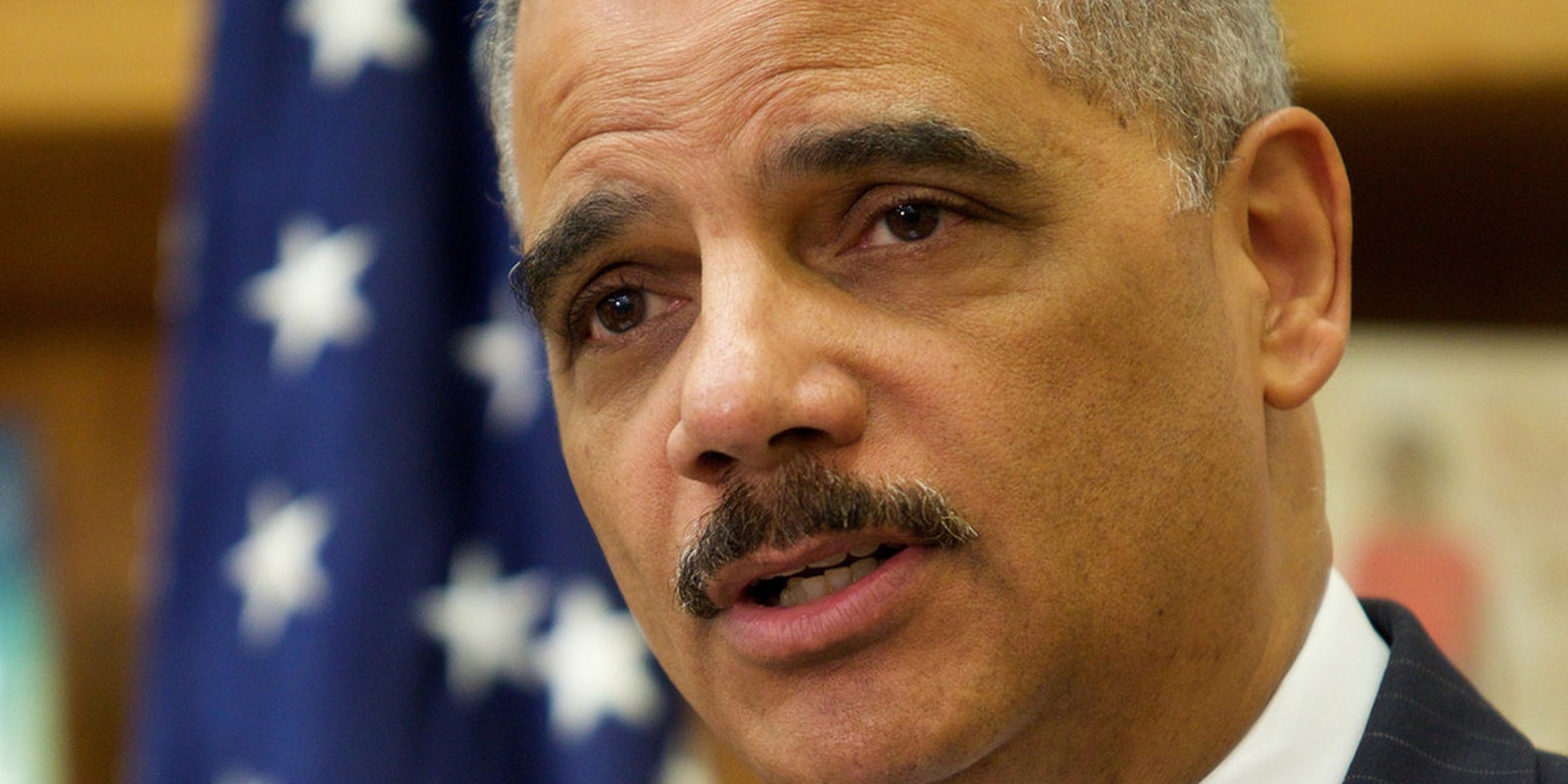The federal government is updating outdated rules governing the use of discriminatory law enforcement practices, but the new policy conveniently excludes areas with the most controversial discriminatory behavior.
As part of the regulatory update, federal law enforcement officers will receive new training, and agencies will gather more records about enforcement behavior. The centerpiece of the update, however, is the expansion of the ban on racial profiling to cover religion, nationality, sexual orientation, and gender identity.
“It’s imperative that we take every possible action to institute strong and sound policing practices,” said Eric Holder, the outgoing U.S. Attorney General.
Despite the administration’s bold talk, the rules have gaping holes that severely undercut their potential efficacy. The policy does not cover three of the most important areas where discriminatory behavior can occur: U.S. border crossings, airports, and the standard jurisdictions of many local police departments.
The Associated Press reports that officials from the Department of Homeland Security (DHS) asked for these national security exemptions based on “the unique nature of border and transportation security as compared to traditional law enforcement.”
In addition, federal agents can still profile an individual based on the categories mentioned above if they have evidence linking the person to a crime.
The border exemption is particularly worrisome given the egregious reputation of the U.S. Customs and Border Patrol (CBP). In September 2013, a producer for the radio show On the Media documented the agency’s intense, widespread, and baseless discrimination against Muslim Americans at the U.S.-Canada border. In her attempts to follow up with DHS, she exposed the department’s tremendous opacity and its lack of accountability even to the congressional committees overseeing it.
The American Civil Liberties Union (ACLU) and other privacy groups have decried the Obama administration’s new rules for preserving the government’s antagonistic behavior toward groups like Muslim Americans.
The national security exemptions, said the ACLU’s Laura Murphy, “permit some of the worst law enforcement policies and practices that have victimized and alienated American Muslim and other minority communities.”
The overhaul of government profiling activities is part of President Barack Obama‘s promise to review law enforcement practices in the wake of several racially charged police killings of unarmed black men, most notably Michael Brown in Missouri and Eric Garner in New York. The Justice Department is conducting its own inquiries in those two cases, both of which ended in controversial grand jury non-indictments at the local level.
The Obama administration’s new policy, announced in a memo released on Monday, covers federal agencies like the Drug Enforcement Administration (DEA) and the Federal Bureau of Investigation (FBI), along with any local and state law enforcement agents who assist federal officials in joint investigations.
Despite the broad federal reach of the new policy, the “practical impact” of the new rules is unclear, the Associated Press notes, because “local police officers are the ones primarily responsible for traffic stops, 911 calls and day-to-day interactions with the communities they patrol.”
Photo via US Department of Education/Flickr (CC BY 2.0)


